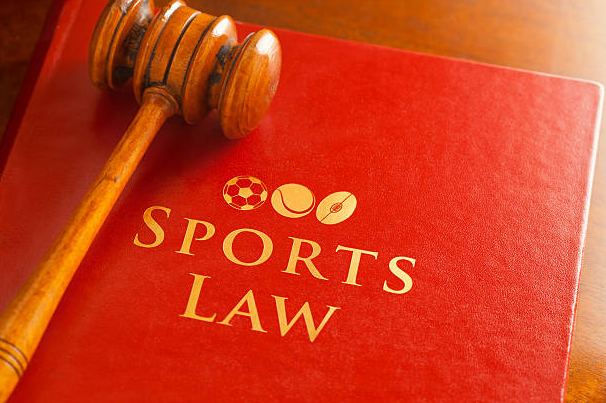Polygraph Testing in Sports-Related Legal Proceedings & Dispute Resolution: Strategic Applications for Sports Law Professionals

The intersection of sports and law creates a unique arena where traditional legal principles meet the specific governance structures of sporting organizations. For sports law professionals navigating this complex landscape, polygraph testing represents a strategic tool that can significantly enhance case preparation, support dispute resolution, and facilitate efficient settlements in a wide range of sports-related legal matters.
The Evolving Role of Polygraph Testing in Sports Arbitration
International sports arbitration, particularly through bodies such as the Court of Arbitration for Sport (CAS), has become the primary forum for resolving high-stakes sports disputes. In this specialized legal environment, sports law professionals require every available advantage to build compelling cases and protect their clients’ interests.
Polygraph testing has found increasing application in sports arbitration contexts, where the focus on efficiency, specialized expertise, and pragmatic dispute resolution creates opportunities for innovative evidentiary approaches that might face more scrutiny in traditional court settings.
Key Applications in Sports Legal Proceedings

Contract Disputes and Breach Claims
Sports contracts—whether involving athletes, coaches, agents, or sponsors—often give rise to disputes regarding contract interpretation, breach allegations, and damages calculations. Polygraph testing can support legal teams in several ways:
- Verifying Factual Claims: When contract disputes turn on factual questions (such as whether verbal agreements existed or whether specific promises were made), polygraph testing can help establish the credibility of competing narratives
- Bonus and Performance Disputes: In cases involving disputed performance bonuses or incentive clauses, polygraph testing can help verify claims about playing time, injuries, or other factors affecting performance metrics
- Transfer and Agency Issues: In complex international transfer disputes, polygraph testing can assist in uncovering undisclosed agreements or side payments that might affect the validity of transactions
For sports law professionals representing either claimants or respondents, polygraph testing offers a strategic tool for testing the strength of evidence before committing to lengthy and expensive arbitration proceedings.
Disciplinary Proceedings and Appeals
Sports organizations’ internal disciplinary systems frequently result in legal challenges, particularly when sanctions significantly affect athletes’ careers or earning potential. Polygraph testing serves several functions in this context:
- Supporting athletes’ defenses against allegations of misconduct
- Providing additional evidence to complement witness testimony in appeals
- Helping legal teams assess the strength of their clients’ positions early in the process
- Facilitating settlement discussions by establishing factual baselines
Agent Misconduct and Regulatory Investigations
The sports agency industry faces increasing scrutiny from regulatory authorities concerned with potential conflicts of interest, unauthorized payments, and unethical practices. Polygraph testing assists sports law professionals in:
- Investigating allegations of agent misconduct
- Verifying compliance with regulatory requirements
- Supporting defense strategies when agents face licensing challenges
- Uncovering undisclosed relationships or financial arrangements
Strategic Benefits for Legal Practice
Enhanced Case Assessment and Preparation
One of the most valuable applications of polygraph testing for sports law professionals occurs during the case assessment phase. Before committing significant resources to litigation or arbitration, legal teams can use polygraph examinations to:
- Test Client Credibility: Confidentially assess the strength of a client’s version of events
- Identify Weaknesses: Uncover potential vulnerabilities in a case before they emerge in proceedings
- Focus Investigation: Prioritize investigative resources on the most promising lines of inquiry
- Support Settlement Decisions: Make informed decisions about whether to pursue litigation or seek negotiated resolutions
This pre-litigation application can save clients substantial costs and help sports law professionals manage risk more effectively.
Facilitating Dispute Resolution and Settlement
In many sports-related disputes, parties prefer to avoid the publicity, expense, and uncertainty of formal proceedings. Polygraph testing can facilitate efficient dispute resolution through:
- Establishing Factual Common Ground: Helping parties agree on key facts, narrowing the scope of disagreement
- Building Confidence in Settlement Terms: Providing additional assurance regarding representations made during settlement negotiations
- Mediation Support: Assisting mediators in understanding the factual landscape and identifying potential resolution pathways
- Confidential Resolution: Enabling parties to resolve disputes privately without creating public records
For sports law professionals skilled in alternative dispute resolution, polygraph testing represents another tool for achieving efficient, client-focused outcomes.
Supporting Witness Preparation and Testimony
While polygraph results may not always be admissible as direct evidence, the process of undergoing polygraph testing can provide valuable insights for witness preparation:
- Identifying areas where witnesses may need additional preparation
- Building witness confidence before arbitration or trial
- Uncovering memory issues or inconsistencies that require clarification
- Demonstrating to opponents the strength of witness testimony
Practical Considerations for Sports Law Practice
Admissibility and Evidentiary Weight
Sports law professionals must carefully navigate questions of admissibility and evidentiary weight when considering polygraph testing. Key considerations include:
- Arbitration vs. Litigation: Arbitration panels often have more flexibility to consider polygraph evidence than traditional courts
- Stipulated Admissibility: Parties can agree in advance to admit polygraph results, increasing their evidentiary value
- Corroborative Evidence: Polygraph results often carry more weight when combined with other forms of evidence
- Expert Testimony: Qualified polygraph examiners can provide expert testimony explaining their methodology and conclusions
Ethical Considerations and Professional Responsibility
Sports law professionals must ensure that polygraph testing is conducted ethically and in accordance with professional standards:
- Using qualified, experienced polygraph examiners with appropriate credentials
- Ensuring voluntary participation and informed consent
- Maintaining confidentiality and privilege protections
- Avoiding misrepresentation of polygraph capabilities or results
- Complying with applicable bar association guidelines regarding novel evidence
International Dimensions
Given the global nature of sports, many sports law matters involve parties, evidence, and proceedings across multiple jurisdictions. Polygraph testing must be approached with sensitivity to:
- Varying legal frameworks across different countries
- Cultural attitudes toward polygraph testing
- Language considerations in examination administration
- Cross-border evidence gathering and admissibility rules
Emerging Trends and Future Applications
As sports law continues to evolve, several trends suggest expanding roles for polygraph testing:
Sports Technology and Data Disputes
The increasing use of performance analytics, wearable technology, and sophisticated data systems creates new potential areas of legal dispute. Polygraph testing may help resolve factual questions regarding data manipulation, system access, or technology-related contract breaches.
Integrity Clauses and Reputational Harm
Modern sports contracts increasingly include integrity and morality clauses that can trigger termination or financial penalties. When disputes arise regarding alleged violations of these provisions, polygraph testing can support or challenge factual allegations affecting reputation and contract rights.
Cross-Border Regulatory Compliance
As sports organizations face increasing regulatory scrutiny across multiple jurisdictions, polygraph testing may assist in compliance investigations and regulatory defense strategies, particularly in cases involving allegations of corruption or financial irregularities.
Conclusion
For sports law professionals operating in an increasingly complex and high-stakes environment, polygraph testing represents a valuable strategic tool that can enhance case preparation, support efficient dispute resolution, and provide clients with cost-effective options for addressing legal challenges.
Whether representing athletes, sports organizations, agents, or sponsors, sports law professionals who understand the appropriate applications of polygraph testing—and its limitations—are better positioned to serve their clients effectively and achieve favorable outcomes in sports-related legal matters.
As the sports law field continues to mature and diversify, innovative approaches to evidence gathering and dispute resolution will become increasingly important. Polygraph testing, when used strategically and ethically, offers sports law professionals a competitive advantage in serving the unique needs of clients in the dynamic world of international sports.
Sports law professionals interested in incorporating polygraph testing into their practice should seek out examiners with specific experience in sports-related matters and a strong understanding of the unique evidentiary and procedural requirements of sports arbitration and dispute resolution.

Recent Comments